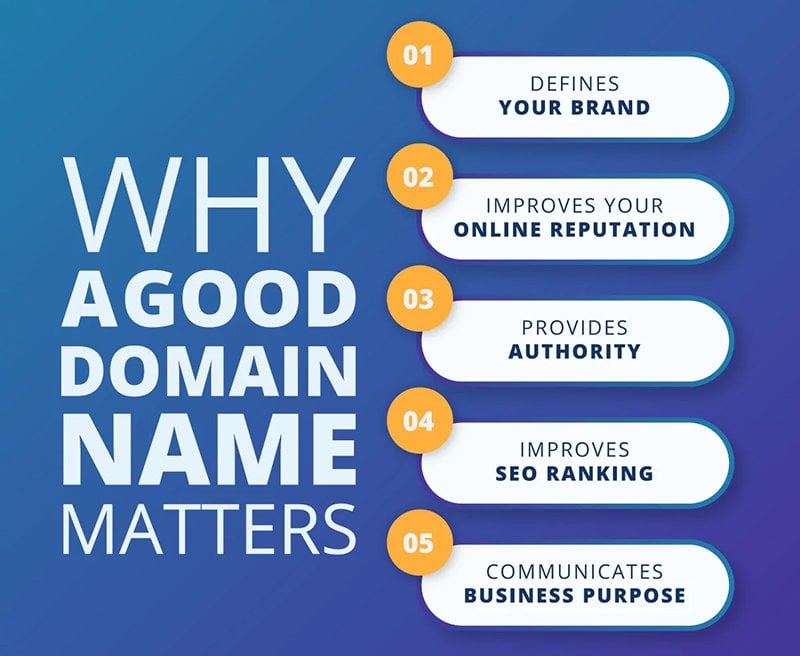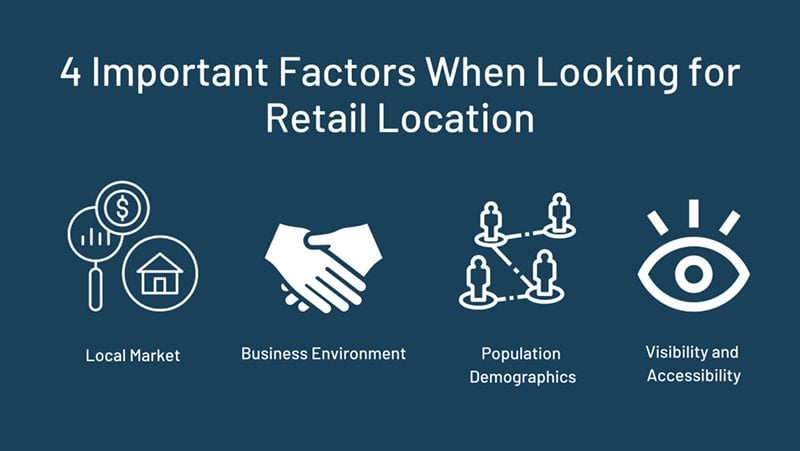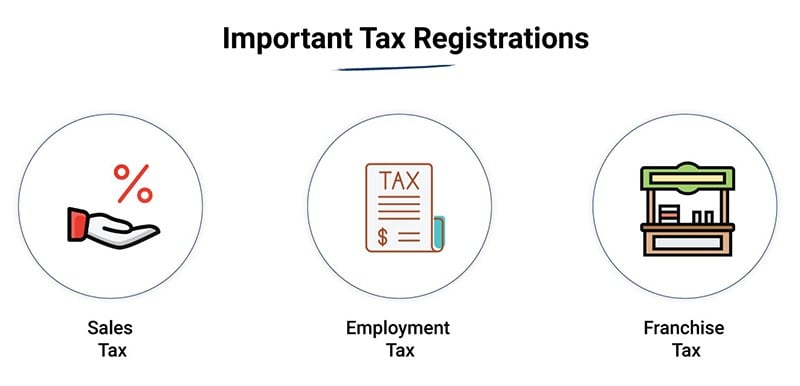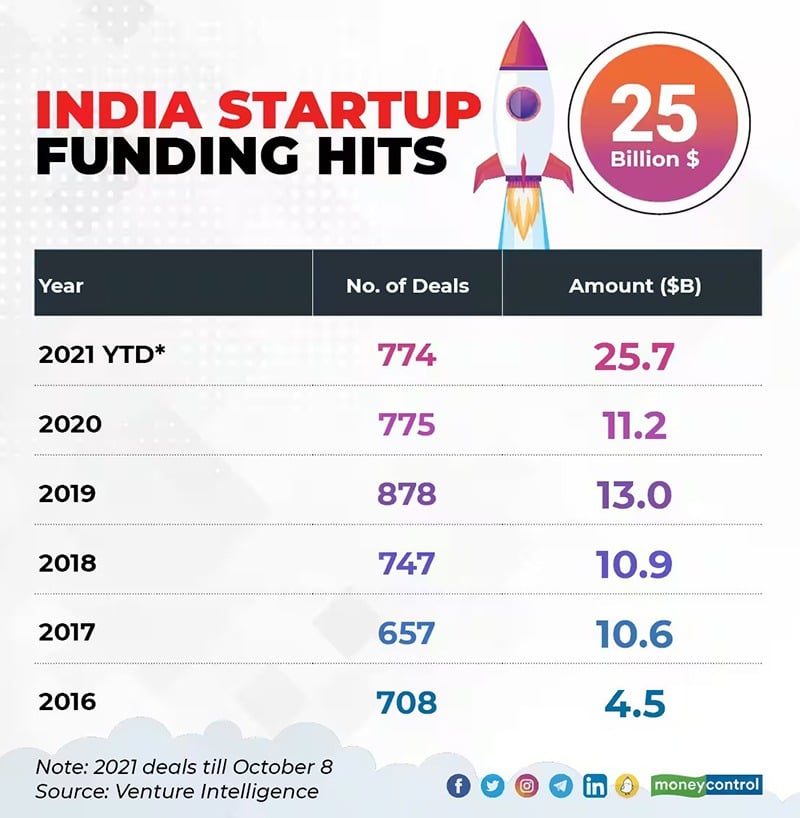How to Start a Business in India

Welcome to the bustling entrepreneurial landscape of India, a place where your business idea can flourish in the ever-evolving Indian market. If you're wondering how to start a business in India, this article will guide you through the entire process.
Conceptualizing your business idea and choosing the right business entity sets the initial foundation. Understanding the registration process and managing your business operations mark the next steps in your rewarding journey.
Whether you're starting a one-person company or a larger venture, the opportunities in India are vast and diverse.
How to Start a Business in India in 12 Steps
Embarking on a journey to start a business in India? Here's a step-by-step guide that will walk you through all the forms, processes, and strategies needed to establish your new business in this vibrant economy.
Step #1: Choose a Business Idea

The journey of a thousand miles begins with a single step – or in this case, a single idea. The foundation of your business in India lies in your business idea.
But how do you choose the right one? Here's a clue: it's a delicate balance of passion, skills, and market potential.
Let's break it down:
- Passion is the fuel that keeps the entrepreneurial spirit alive. If you love what you do, your enthusiasm will shine through and inspire both your team and your customers.
- Skills are what you bring to the table. You might be a software wizard considering a startup in the booming information technology sector. Or, you might have a knack for cooking and see potential in opening a unique restaurant. The key is to capitalize on what you're good at.
- Market potential is where your business idea meets the Indian market. Conduct a thorough market analysis to identify your target market. Look at various factors, such as consumer behavior, competition, and market trends. The goal is to spot a gap in the market that your business can fill.
For example, you might observe a rising demand for sustainable products within the Indian market. This trend could inspire you to kickstart your own small business focused on selling eco-friendly goods.
Keep this in mind: your business idea should not only reflect your passion and skills. It should also effectively cater to the needs of the Indian market. Choosing the right business idea is a crucial first step in your entrepreneurial journey.
Pro Tip: Start small, dream big. Starting on a small scale allows you to test the waters and learn from the experience. Once you've figured out what works, you can scale up.
Step #2: Decide on a Business Name
Once you've nailed down your business idea, it's time to give your dream a name.
Choosing the right name for your business is just as crucial as the business idea itself. It's more than just a moniker; it's the identity that'll set you apart in the bustling Indian market.
So, what goes into a mighty business name? Here are a few key factors:
- Relevance: Your business name should align with what you're offering. It should provide a hint about your products or services.
- Simplicity: Keep it short and sweet. A simple name is easy to remember, pronounce, and spell.
- Uniqueness: Aim for something that stands out. Avoid names that are too generic or similar to existing businesses.
- Future-proof: Choose a name that allows room for growth. Avoid being too specific that it restricts future expansion.
- Domain Availability: In this digital age, having a matching domain name is crucial for online visibility. Check domain availability as you brainstorm business names.
As you're brainstorming names, it can be helpful to use our free business name generator. It’s sure to provide a slew of creative ideas to help you get your creative juices flowing.
The right business name strikes a balance between what you offer and what resonates with your target market. Take your time to choose a name that embodies your brand and piques the curiosity of potential customers in the Indian market.
Step #3: Find Available Website Domains

Securing a suitable domain for your company's website is a fundamental step in starting a business. This is especially true in the digital age and in a rapidly digitizing economy like India.
This is the address your customer base will use to find you online. It should ideally mirror your business name, making it intuitive and memorable.
As an early-stage business owner, remember that a website is more than just an online storefront. It's the cornerstone of your digital identity and a vital component of your branding strategy.
Ready to take your new business online? Grab your digital identity by securing a domain name. Here's your quick guide:
- Purpose: A domain name is your online address. It's how your customers find you on the Internet.
- Match Business Name: Your domain should ideally reflect your business name – simple, memorable, and easy to spell. Check out our free domain name generator for a quick suggestion.
- Where to Check: Use domain registrar websites like GoDaddy, Namecheap, or Bigrock to check for availability.
- .com or .in: ‘.com' is universally recognized, but ‘.in' is also effective if you're focusing on the Indian market (best for local e-commerce).
- Be Swift: Remember, domain names are unique. In the world of domains, it's often a case of here today, gone tomorrow. If you find the perfect match, snag it!
Pro tip: Avoid hyphens, numbers, or complex words in your domain name. Keep it easy and intuitive.
Step #4: Launch Your Website
Once you've figured out your domain, it's time for the big reveal – launching your website!
A website serves as the hub for your business in the digital space. It provides vital information about your products or services and enables transactions with your customer base.
In today's era, creating a website does not require you to be tech-savvy. Here's a step-by-step guide:
- Platform Selection: E-commerce platforms like WordPress, Wix, and Shopify provide user-friendly interfaces, customizable templates, and numerous plug-ins. These resources make the process easier for even the least technologically inclined business owner.
- Reflect Your Brand: Ensure your website mirrors your brand's image and values. Short on time? No worries, browse through our collection of engaging business website templates to find the perfect match for your business.
- Navigation and Design: Make it visually appealing and easy to navigate. Break up text with relevant images or videos, making sure that your content is informative and engaging. Your customer's user experience is key.
- Call to Action: Include a clear call to action, guiding your visitors to make a purchase, sign up for a newsletter, or contact your business for more information. Make the next step clear and enticing.
- Mobile-friendly: A must in the Indian market, where a majority of nearly 50% of the population accesses the web via smartphones. Not having a mobile-optimized website could significantly reduce your potential reach within the Indian market.
Pro tip: A website launch isn't a one-off task. Keep it fresh with regular updates, optimizations, and new content.
As you journey through the start-up process, remember adaptability is your friend. In a vibrant and evolving market like India, keeping pace with change is essential for success. Let's move on to the next step – defining your offer.
Step #5: Define Your Offer (aka Products and Services)

It's not just about what you're selling but how you're selling it. That's the cornerstone of starting a business.
You must define your offerings clearly to stand out in the Indian economy, which is as diverse as the country itself.
- Know Your Product/Service: What is it that you're selling? Is it a tangible product or an intangible service? Can it solve a problem or fulfill a need? Nail down the specifics.
- USP (Unique Selling Proposition): What makes your offer different from others? Maybe it's an innovative twist to a common product or a service provided in an unconventional manner. Identify it and highlight it.
- Price Point: How much will it cost? Will it cater to the luxury market, the budget-conscious, or somewhere in between? Remember, price communicates value.
- Packaging and Delivery: How will you deliver the product or service to the customer? Will you need physical packaging, or would a digital delivery suffice?
Pro Tip: Always think from a customer's perspective when defining your offer. Ask yourself, “Would I buy this product/service at this price?” Honest answers will lead to product improvements and better pricing strategies.
Step #6: Generate & Validate Your Business Model
Creating a business model is one of the most crucial steps in starting a business in India or any other country.
A business model lays out how your business will generate profits, delineate costs, and outline your business structure.
- Identify Key Activities: What are the fundamental activities that your business needs to undertake to deliver its offerings?
- Revenue Streams: What are your sources of income? This could be direct sales, membership fees, advertising revenue, and more.
- Cost Structure: What are your primary cost drivers? This could be raw materials, labor, marketing, and more. It's essential to understand these costs to maintain profitability.
- Customer Segments & Relationships: Who are your customers? How will you build and maintain relationships with them?
- Partnerships: Will you be working with any business partners, like suppliers or marketing partners?
- Channels: How will your product or service reach your customers? This includes both marketing and distribution channels.
Your business model should clearly depict how the business will create, deliver, and capture value. Once you have outlined your model, it's time to validate it.
Talk to potential customers, experts, and even competitors. Collect feedback, tweak your plan, and repeat. The goal is to arrive at a viable and sustainable model for your business in India.
Always keep in mind that, despite your detailed business plan, the Indian market may require you to adapt and change in ways different from other markets.
In such a vibrant and dynamic economy, flexibility can be key to creating and seizing new employment opportunities.
Pro Tip: Remember, a business model is not a “set it and forget it” document. It's a living, breathing blueprint for your business. As your business grows and the market changes, be prepared to revisit and revise your model to stay relevant and competitive.
Step #7: Decide on the Location

Next in the fundamental steps of starting a business in India is deciding the location.
Brick-and-mortar businesses are heavily reliant on location. However, for an online business, a physical location may not be crucial, but the choice of city or state can impact legal requirements and tax liabilities.
- City or State: If you're starting a small business in India that requires a physical presence, your choice of location will be governed by your target market, proximity to suppliers, and availability of resources such as manpower and raw materials.
- Online: For online businesses, your ‘location' could be your website or online marketplace. Still, it's necessary to decide on a state for registering your company. This decision can influence your tax liabilities.
Pro Tip: Use geospatial tools for physical location selection based on demographics and competitor proximity. For online businesses, focus on optimizing your website or digital marketplace.
Step #8: Register Your Business
The business registration process can appear intimidating, especially if you've never started a business in India or other countries.
But don't fret! The process is streamlined, with clear instructions available online.
Here's a simplified rundown:
- Choose a Business Structure: Decide if you want to operate as a Sole Proprietorship, Partnership, Limited Liability Company (LLC), or Private Limited Company. Your choice will impact the documents required, the cost and the time taken for registration.
- Obtain a Director Identification Number (DIN): If you're registering as an LLC or a Private Limited Company, the directors need to get a permanent DIN from the Ministry of Corporate Affairs.
- Register Your Business Name: Reserve your business name with the Registrar of Companies (RoC). Submit at least two alternatives in case your first choice is already taken.
- Submit Documents: Submit the necessary documents, including proof of address, proof of identity, and the articles of association.
- Get the Certificate of Incorporation: Once your application is approved, you'll receive the Certificate of Incorporation. This certificate is the legal proof of your company's existence.
Remember, rules can vary between states, so ensure you research your state's specific requirements.
Indian Government departments, like the Ministry of Corporate Affairs, have made strides in simplifying this process.
Additionally, numerous online platforms and service providers can help you through the entire process, so starting a business in India has become easier than ever.
Pro Tip: Consider hiring an online legal expert or chartered accountant for the registration process. They'll guide you, saving time and preventing costly mistakes.
Step #9: Get Yourself Tax Registered

To keep your budding enterprise in the green zone with the Indian government, getting tax registered is mandatory. It's a crucial step when you're starting a business in India, particularly after your company registration.
Here's how you can proceed:
- Obtain a Tax Account Number (TAN): Issued by the Income Tax Department, this 10-digit alphanumeric identifier is essential for deducting or collecting tax at source (TDS or TCS) from payments your business makes.
- Apply for a Tax Deduction Account Number (TAN): You can file an application through application form 49B at any TIN facilitation center or online on the NSDL-TIN website.
- GST Registration: Is your annual turnover exceeding INR 40 lakhs? (For certain special category states, the limit is INR 20 lakhs.) If so, you need to register for Goods and Services Tax (GST). The official online GST portal by the Indian government facilitates online GST registration.
Here's a quick checklist of what you need for GST registration:
- Permanent Account Number (PAN) card
- Mobile number
- Email ID
- Proof of business registration or incorporation certificate
- Address proof for the place of business
- Bank account statement
- Digital signature certificate for the authorized signatory
Remember, correct tax registration and diligently filing taxes are more than legal obligations. They enhance your business's credibility and protect you from potential legal issues.
Pro Tip: Seek advice from tax experts or chartered accountants when dealing with tax registration to avoid any legal issues in the future.
Step #10: Build Your Team
Once the legalities are in place, it's time to bring in people who can convert your vision into reality. Crafting the right team is a critical process when starting a business anywhere, and India is no different.
Here's your step-by-step guide:
- Identify Key Positions: Understand your operational needs and identify the positions you need to fill. Every role should contribute to your vision and add value to your organization.
- Create Job Descriptions: Write comprehensive job descriptions outlining responsibilities and skills for each position. This clarity attracts the right candidates and saves you time during hiring.
- Leverage Recruitment Platforms: Platforms like LinkedIn, Naukri.com and Indeed can connect you with a wide range of potential candidates. Don't forget to consider employee referrals, as they often bring reliable new hires.
- Interview Process: Create an engaging and fair interview process. This is your chance to assess not only the candidate's job skills but also their fit with your company culture.
- Compliance: Ensure your small business complies with all labor laws and standards in India, provides fair wages, and maintains a safe and positive work environment.
Remember, a motivated team not only builds a successful business but also creates a brand people trust. A perfect blend of the right skills and shared values is what you aim for when building your team.
Pro Tip: Hire for attitude, train for skill. Cultural fit can often be more important than an immediate skill set in a growing business.
Step #11: Explore Funding & Financing Options [H3]

Starting a business in India usually involves various expenses. That's where funding and financing options come in to ease the financial strain.
- Bootstrapping: This involves using your savings or getting friends and family to contribute. While it may put personal relationships at stake, it's a way to retain complete control over your business.
- Bank Loans: Many banks and financial institutions provide loans specially tailored for small businesses. Just make sure you have a solid business plan to convince them of your business's potential.
- Angel Investors and Venture Capitalists: These are individuals or companies willing to invest in businesses with high growth potential. They usually seek equity in return. Pitching to them requires a robust business plan and proof of potential success.
- Crowdfunding: This involves raising small amounts of money from a large number of people, typically via the Internet. It's a great way to validate your business idea and create a community around your brand.
- Government Grants and Subsidies: The Indian government offers various schemes to boost entrepreneurship. These include Mudra Loans, CGTMSE, Startup India Initiative and more.
Pro Tip: Consider applying for government grants and subsidies. They often come with low interest rates and favorable terms.
Step #12: Test & Measure Different Marketing Channels [H3]
Once you've got your business off the ground, it's time to create a buzz. Here's where marketing comes in.
- Social Media Marketing: Utilize platforms like Facebook, Instagram, LinkedIn, and Twitter. They're cost-effective and can reach a wide audience.
- Content Marketing: Share valuable content related to your business. Blogs, podcasts, and infographics can attract and engage your target audience.
- Email Marketing: Despite being one of the oldest forms of digital marketing, it's still effective. It's an excellent tool for customer retention and communication.
- Search Engine Optimization (SEO): Improve your website's visibility on search engines. It's a long-term strategy that brings organic traffic to your site.
- Paid Advertising: This includes Google Ads, Facebook Ads, and others. It can drive immediate results, but it's essential to monitor the ROI closely.
Remember to track and measure the success of each marketing channel.
Use business intelligence and analytics tools like Google Analytics, SAP BTP, Facebook Insights, Zoho Analytics, or even simple customer surveys. This helps you understand what's working and where to focus your efforts.
Pro Tip: Always test and optimize your marketing strategies. What works for one business might not work for another.
Business Entities You Can Start In India
Starting a business in India isn't confined to a single type. A broad range of business entities can fit various needs and requirements. Let's skim through the common ones:
- Sole Proprietorship: As the name suggests, it's a one-man show. A single person runs the business, but be careful – personal assets could be at risk since the owner is personally liable.
- Partnership Firm: This involves two or more individuals coming together with a mutual understanding outlined in a partnership deed. Remember, partners are personally liable for the business's debts.
- One-Person Company (OPC): It's like a hybrid of a private limited company and a sole proprietorship. It's beneficial for a single person who isn't ready to take on the risk of personal liabilities.
- Limited Liability Partnership (LLP): This gives the benefits of limited liability to partners (i.e., they're not personally liable), and it allows them to undertake activities as individuals.
- Private Limited Company: Preferred by most, it's a separate legal entity, and it limits liability to the shares held. It requires at least two shareholders.
- Public Limited Company: It's similar to a private limited company, but it can sell shares to the public. This entity requires a minimum of seven members.
- Foreign Company: If a foreign company wants to undertake activities in India, it can open a branch office, project office, or liaison office.
Deciding the type of business entity to start in India can be a game-changer. Consider the different types of business entities with their pros and cons before diving in to ensure a smooth sailing entrepreneurial journey.
Explore Further
- Popular Business Ideas for Beginners in India
- Top 44 Indian Entrepreneurs
- Best Passive Income Ideas in India
- Top Indian Startups To Watch in 2023